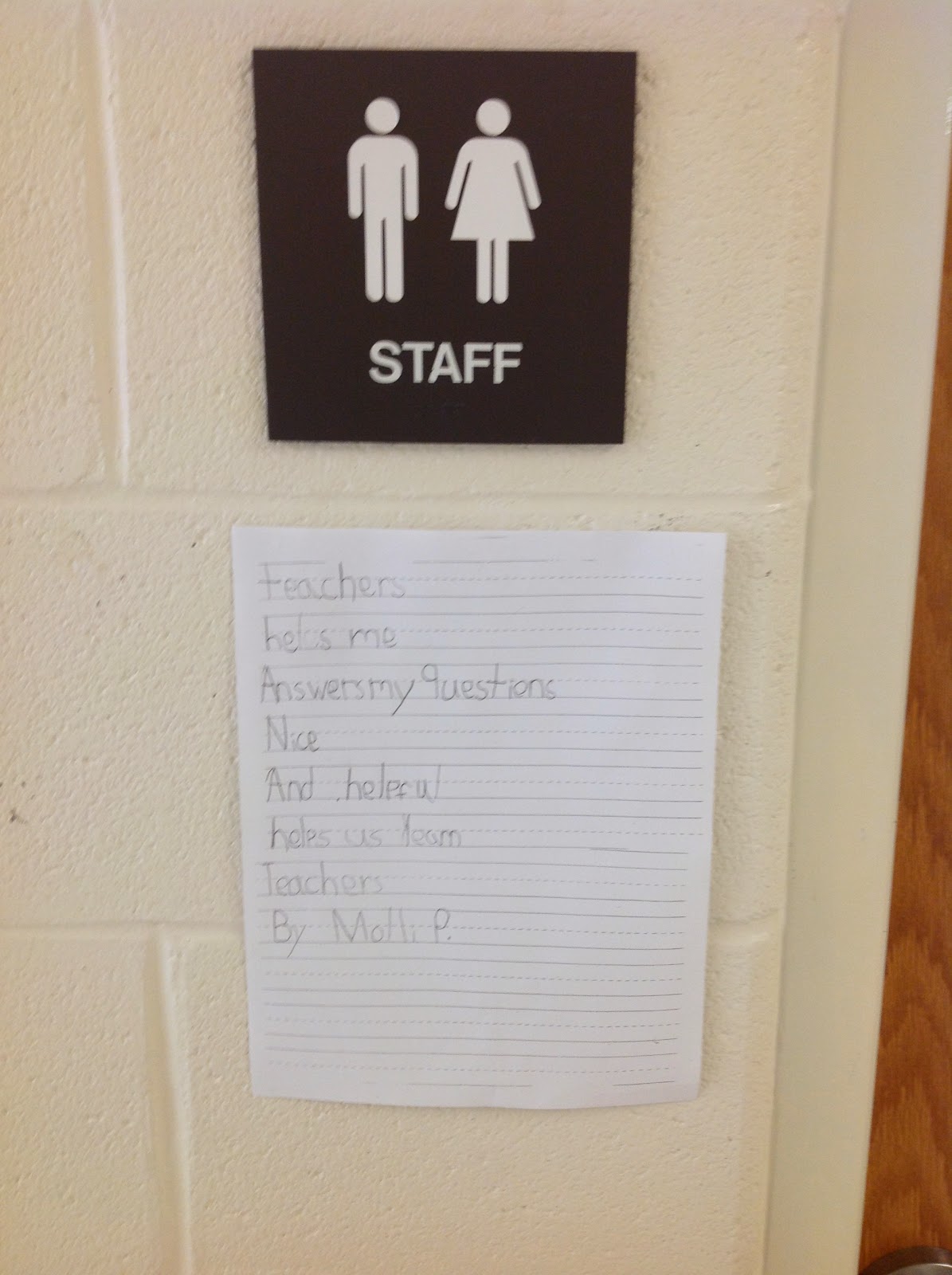It's National Poetry Month! Those of you who know me know I'm a "poetry all year" kind of gal, but this extra emphasis on poetry in April always brings such joy. I love that National Poetry Month is celebrated in the spring. Even Mother Nature jumps into the action by creating a canvas of beauty for poets to capture with their pens. In the classroom, this celebration comes at a time our learning communities can use a little energy boost.
In walks poetry.
For National Poetry Month, many bloggers are writing, or sharing, a poem every day for the entire month. As a classroom teacher, I have always found a little fresh poetry to liven up the classroom and inspire my writers so I thought I'd share three blogs you might want to follow with your students.
Raising Rooney at Carol's Corner: Poetry can tell a story and Carol Wilcox is one of the masters of this. This month, Carol is sharing stories of Rooney each day in April. Rooney is a puppy in training to become a service dog. He's been with Carol since we was a wee pup. In this series, Carol shares narrative free-verse to tell the stories of Rooney's journey. Students are sure to enjoy the antics of Rooney. Additionally, her poetry makes an excellent mentor text for young poets looking for ways to share a story through poetry.
Equation Poems with Laura Purdie Salas: Have some math-minded learners in your community? They're sure to love the growing collection of Equation Poems written by Laura Purdie Salas. Each day in April, Laura will a share a new equation poem. These are quick and fun. Your students will enjoy each day's surprise. These poems make great mentors for careful thought in word choice. This daily challenge pairs nicely with Amy Krouse Rosenthal's book: This Plus That.
Avian Allusions with Christine Wyman: Each day in April, Christine is sharing a poem about birds. Young writers will enjoy the images she shares alongside her daily poem. This series illustrates the way we can look at something of interest in many ways. There are many ways to write about the same thing. Young writers will also enjoy the way she digitally crafts image and poem for greater meaning.
If you're looking for other links for National Poetry Month, click the blue image at the beginning of this post, follow #NationalPoetryMonth on Twitter, or stop by Soul Blossom Living to find other monthly collections from members of the Poetry Friday community. This month, I'm writing a poem each day at Merely Day by Day around JOY. If you know of other events of interest - and there are many - feel free to share those in the comments below. Enjoy!


















